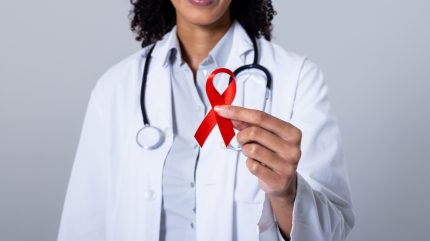
Researchers will present data from a ‘first-of-its-kind HIV cure’ stem cell transplant at the upcoming AIDS 2024 Conference.
Experts will share information about the “next Berlin Patient”, who appears to be the world’s seventh person cured of HIV following a stem cell transplant- but the first HIV cure case in which the donor had a single, rather than double, CCR5-delta32 mutation, which could have promising implications for future research.

Discover B2B Marketing That Performs
Combine business intelligence and editorial excellence to reach engaged professionals across 36 leading media platforms.
The 25th International AIDS Conference will be held between 22 and 26 July in Munich, Germany.
The “next Berlin Patient” had both leukaemia and HIV and received a stem cell transplant for the former in late 2015. In late 2018, he stopped taking antiretroviral treatment for HIV and most recent investigations show he remains in HIV remission.
“A healthy person has many wishes, a sick person only one,” said the next Berlin Patient, who has chosen to remain anonymous.
The research, led by Christian Gaebler, professor at Charité, Universitätsmedizin, Berlin, explains that donors who provide the double mutation, one from each parent, are essentially immune to HIV, which is why the transplant has been effective. A stem cell transfer of the double mutation led to the first patient, being ‘cured’ of HIV.

US Tariffs are shifting - will you react or anticipate?
Don’t let policy changes catch you off guard. Stay proactive with real-time data and expert analysis.
By GlobalDataMeanwhile, donors with one copy of the mutation can acquire HIV, but the virus generally progresses slowly if they do not receive antiretroviral treatment.
The reason this is such a notable result is that significantly more people have the single mutation than the double mutation, meaning it would make it easier to access the transplant.
IAS president Sharon Lewin said: “We’re seeing impressive innovation across the entire spectrum of HIV research. For these advances to have a real-world impact, we must put people first and keep delivery and access concerns front and centre.”
There will also be a poster presentation of UNAIDS-led projections showing that without bold action, there could be nearly 35 million new HIV acquisitions and nearly 18 million AIDS-related deaths between 2021 and 2050.
AIDS 2024 will also include a presentation with late-breaking full results from Gilead’s PURPOSE 1 trial of long-acting injectable lenacapavir for HIV prevention. Last month, topline results from an interim analysis of the trial indicated that injectable lenacapavir demonstrated a 100% efficacy for HIV prevention in cisgender women.
Research suggests that doxycycline pre-exposure prophylaxis (DoxyPrEP) is a promising strategy for preventing sexually transmitted infections (STIs), with a Phase IV trial (NCT03980223) by the University of California showing a 79% reduction in syphilis, a 92% reduction in chlamydia and a 68% reduction in gonorrhoea in the doxycycline arm compared with the placebo arm.
Another presentation will look at real-world evidence showing that long-acting injectable cabotegravir (CAB-LA) is a popular and feasible HIV prevention option for women and men in Africa.




